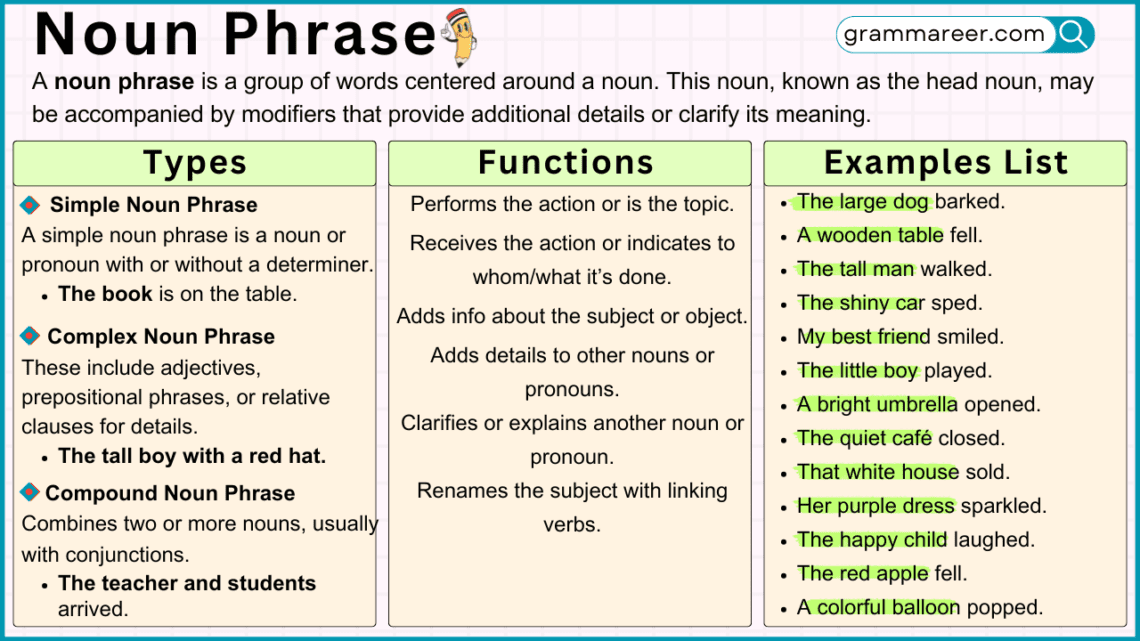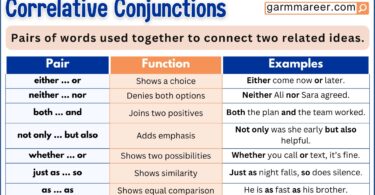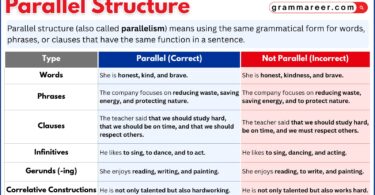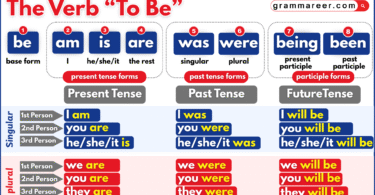Noun phrases are a fundamental concept in English grammar that every learner should understand. These phrases serve as building blocks of sentences, allowing us to communicate ideas more effectively. A noun phrase is a group of words that act together as a single noun. It typically includes a noun (the head word) and other words that modify it, such as adjectives or determiners. Understanding noun phrases can help you create clearer and more engaging sentences.
A noun phrase is a group of words centered around a noun. This noun, known as the head noun, may be accompanied by modifiers that provide additional details or clarify its meaning.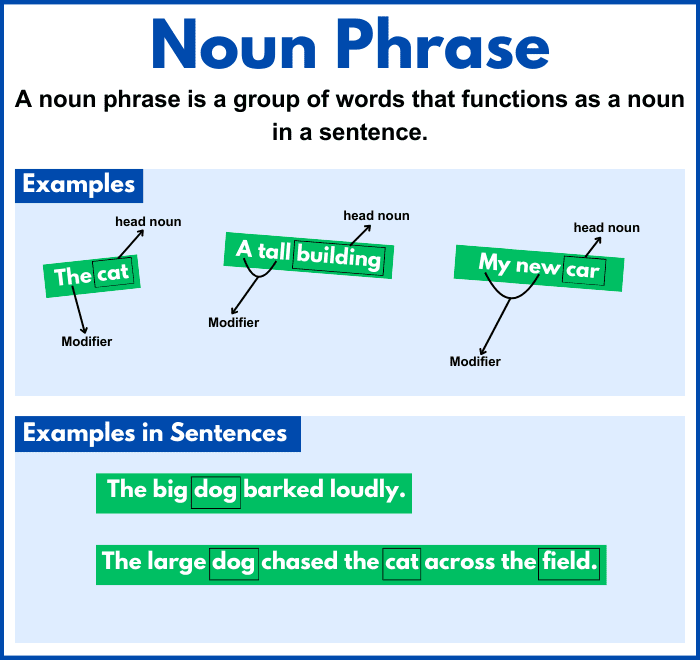
Example:
Fatimah’s beautiful cat sat on the mat.
The phrase “Fatimah’s beautiful cat” is a noun phrase. “Cat” is the head noun, while “Fatimah’s” and “beautiful” are modifiers that provide more information about the cat.
Table of Contents
Types of Noun Phrases
Noun phrases can be categorized based on their structure and components. Here are some types of noun phrases.
1. Simple Noun Phrase
A simple noun phrase consists of just a noun or pronoun, sometimes accompanied by a determiner.
Example:
- The book is on the table.
In this sentence, “book” is the main noun, and “the” is the determiner.
2. Complex Noun Phrase
These include additional modifiers, such as adjectives, prepositional phrases, or relative clauses, that provide more information.
Example:
- The hardworking teacher in the school inspires students.
Here, “teacher” is the main noun, while “the hardworking” and “in the school” add extra details.
3. Compound Noun Phrase
A compound noun phrase combines two or more nouns, often with conjunctions.
Example:
- Ahmad and Ali’s shop is famous in the market.
The nouns “Ahmad” and “Ali” are joined with a conjunction and a possessive modifier.
How to Identify a Noun Phrases
Identifying noun phrases can be simple if you follow these steps:
- Locate the noun: Find the main noun or pronoun in the sentence.
- Check the modifiers: Look for words describing or specifying the noun, such as adjectives, articles, or prepositional phrases.
- Test its role: Replace the group of words with a pronoun to confirm it functions as a single unit.
Example: The tall boy in the blue shirt won the race.
- “Boy” is the main noun.
- “The tall” and “in the blue shirt” are modifiers.
- The phrase can be replaced with “He,” proving it functions as a unit.
The Functions of Noun Phrases
Noun phrases serve several important functions in a sentence:
Subject
The noun phrase can act as the subject of the sentence.
- The new student is smart.
Object
It can function as the object of a verb.
- She loves the colorful flowers.
Complement
It can act as a complement, providing additional information about the subject or object.
- His dream is becoming a doctor.
Examples of Noun Phrase
Here are examples of noun phrases and their explanations:
- The bright blue sky is beautiful.
“The bright blue sky” is the noun phrase.
- A tall man walked past.
“A tall man” is the noun phrase.
- My brother’s new car is expensive.
“My brother’s new car” is the noun phrase.
- This old book belongs to the library.
“This old book” is the noun phrase.
- The black and white dog is very friendly.
“The black and white dog” is the noun phrase.
- She is wearing a red dress.
“A red dress” is the noun phrase.
- The angry teacher left the room.
“The angry teacher” is the noun phrase.
- Her father’s new job is exciting.
“Her father’s new job” is the noun phrase.
- Some delicious food was on the table.
“Some delicious food” is the noun phrase.
- The tall building by the river is a hotel.
“The tall building by the river” is the noun phrase.
Noun Clauses vs. Noun Phrases
Many learners confuse noun clauses with noun phrases. Here’s how they differ:
| Feature | Noun Phrase | Noun Clause |
|---|---|---|
| Definition | A group of words acting as a noun. | A dependent clause acting as a noun. |
| Contains | A noun with modifiers. | A subject and verb. |
| Example | The shining stars | What he said |
| Test | Replace with a pronoun: “They” | Replace with “it”: “It matters.” |
Structure of Noun Phrase
A noun phrase typically consists of the following elements:
Head Noun
The main noun of the phrase (e.g., “dog,” “book”).
Modifiers
Words or groups of words that describe the head noun, such as adjectives or articles.
Determiners
Words like “the,” “a,” “this,” or “my” that specify or limit the noun.
Complement
Additional words that provide more information about the noun.
Check Your Understanding of Noun Phrases
Identify the noun phrases in these sentences:
- She gave the little boy a gift.
- The flowers in the garden are blooming beautifully.
- We visited a historical site near the city.
Answers:
- “The little boy”
- “The flowers in the garden”
- “A historical site near the city”
FAQs
A noun phrase is a group of words centered around a noun, with modifiers adding extra details. It acts as a single noun in a sentence.
This old book belongs to the library.
A noun clause contains a subject and verb, while a noun phrase doesn’t. Both act as nouns but have different structures.
The big red car
A cup of coffee
The tall man with glasses
A bouquet of flowers
My favorite book
The beautiful sunset over the ocean
A pile of books on the table
Simple Noun Phrase
Expanded Noun Phrase
Complex Noun Phrase
Determiner + Noun Phrase
Noun Phrase with Postmodifiers
Conclusion
Noun phrases simplify and enrich English communication. Mastering them allows learners to craft clear, detailed, and effective sentences. Practice identifying and using noun phrases to elevate your grammar skills.
You May Also Like

